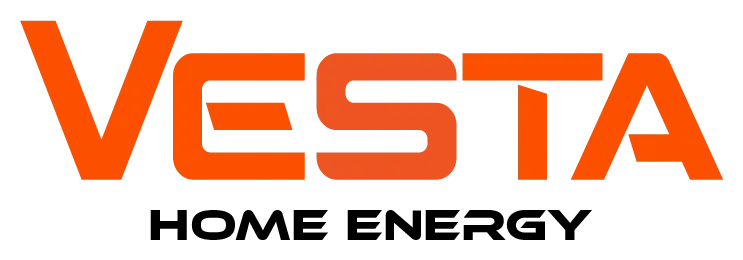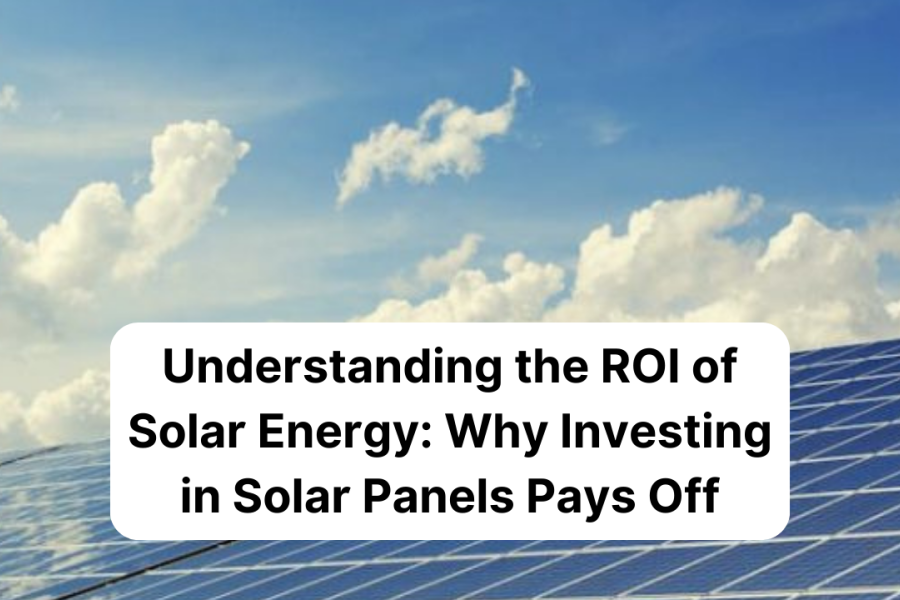
As a landlord or homeowner, making smart investments is crucial to maximize your property’s value and appeal while ensuring a solid return on investment (ROI).
One such investment that has gained significant traction in recent years is installing solar panels. With increasing costs and growing environmental concerns, a solar panel can offer an attractive and eco-friendly solution.
This article explores the solar panel ROI and why investing in solar panels is a wise decision for landlords.
The Basics of a Solar Panel System
Solar power uses the sun to generate electricity. Solar panels installed on rooftops, typically consist of photovoltaic cells that convert sunlight into energy. This reduces your electric bill, and contribute to a greener environment.
A solar system can also be paired with battery storage solutions to maximize efficiency and reliability. Batteries store excess energy generated during the day, which can be used during nighttime or cloudy periods when solar production is lower.
This not only ensures a consistent solar power supply but also further reduces dependence on the grid, providing greater autonomy and resilience for your property.
Financial Benefits of a Solar Panel Investment
- Reduced Electricity Bill: One of the most immediate benefits of installing solar panels is the reduction in cost over time. Depending on the location and the size of the solar panels, homeowners can significantly cut or even eliminate power costs. For landlords, this can mean substantial savings over time, increasing their property’s profitability.
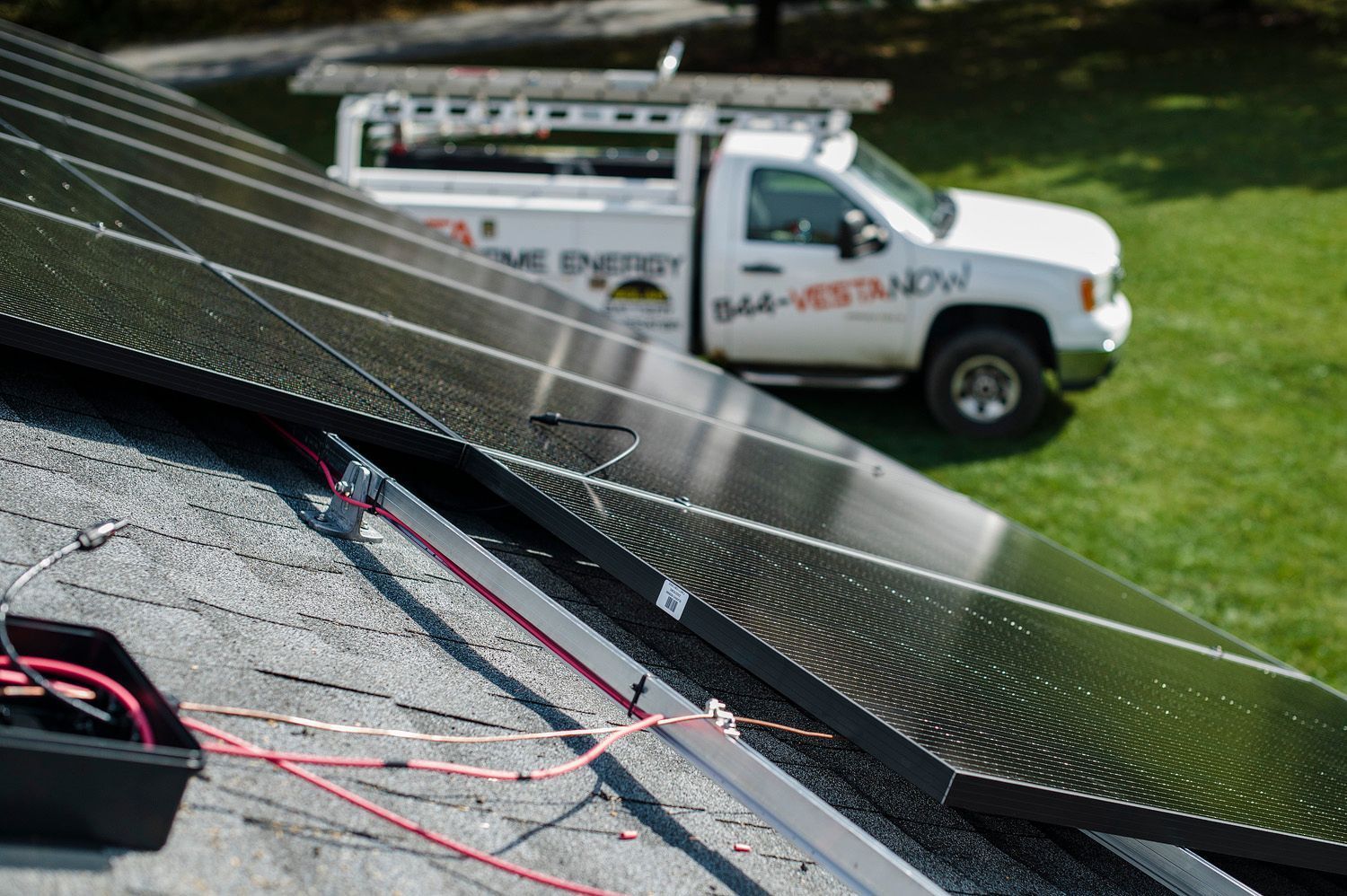
- Tax Incentives and Rebates: Governments and local authorities offer various incentives to encourage the adoption of solar panels . These incentives include federal solar tax credits, state rebates, and other financial benefits that can cover a significant portion of the solar installation costs.
- Increased Property Value: Solar panels can increase your property’s value. Studies have shown that homes with solar energy components sell faster and at higher prices than those without. As a landlord, these systems can enhance your property’s marketability and provide a competitive edge.
- Stable Electricity Costs: With solar electric systems, you can protect yourself from the volatility of energy prices. While utility rates can fluctuate due to various factors, solar provides a more predictable and stable cost. This stability can be particularly advantageous for budgeting and long-term financial planning.
Environmental Benefits
- Reduction in Carbon Footprint: Solar electricity is a clean, renewable source that reduces greenhouse gas emissions. By investing in solar panels, you contribute to a reduction in your carbon footprint, helping combat climate change and promoting sustainability.
- Energy Independence: By generating your own electricity, you reduce your dependence on the grid. This not only provides security but also lessens the demand on traditional power sources, further reducing environmental impact.
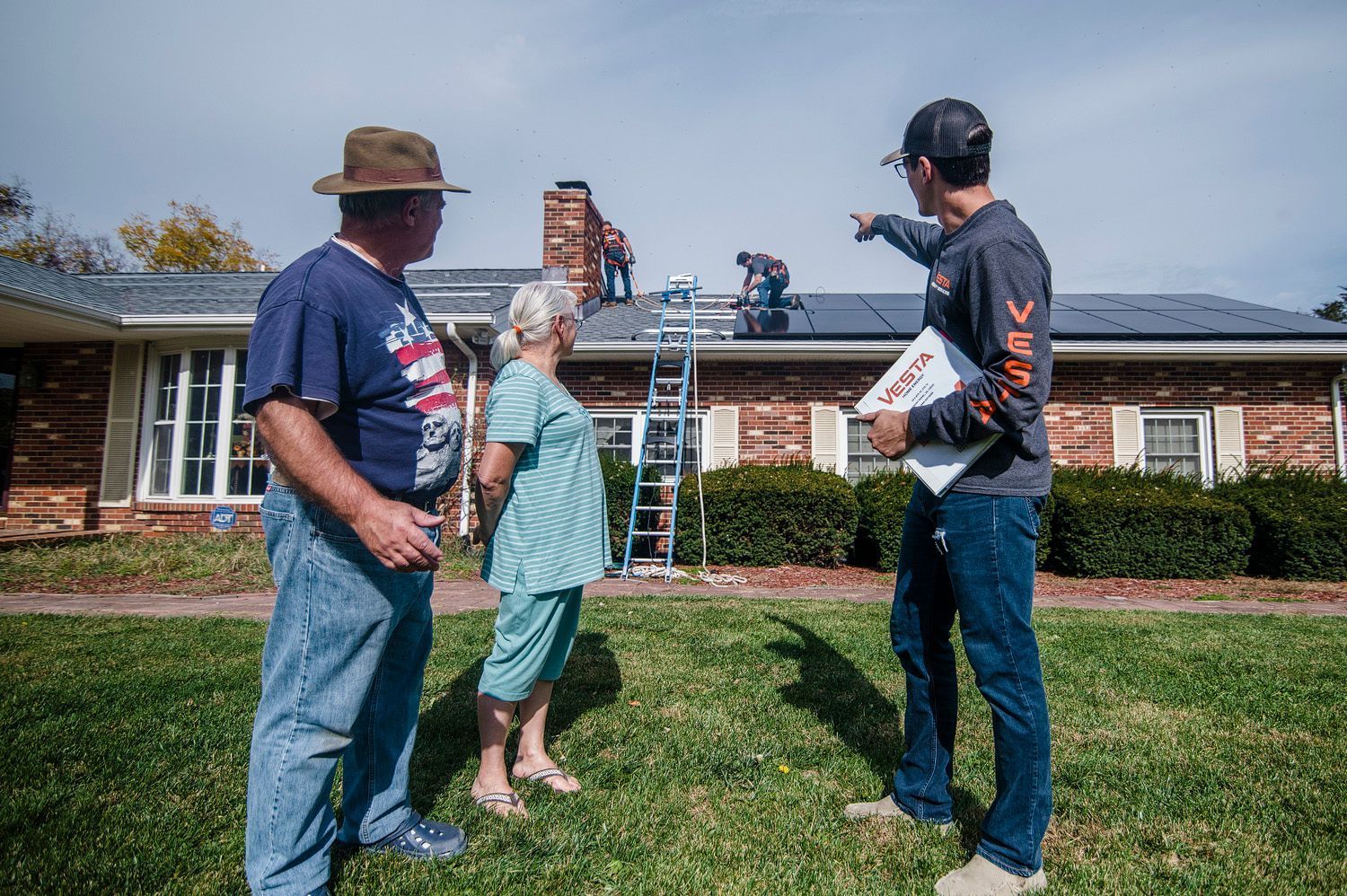
- Long-Term Return on Investment and Solar Payback Period: Solar panel ROI is typically gauged by the solar payback period, usually 6 to 10 years. Factors like the cost of solar installation and local incentives influence this. Afterward, you benefit from free electricity for over 25 years, outweighing the initial investment and making solar energy system highly appealing financially.
Factors Influencing Solar ROI
Several factors influence solar panel ROI, including:
- Location: The amount of sunlight your property receives directly affects the efficiency of solar panels. Properties in sunnier regions will generate more electricity and achieve a faster solar ROI compared to those in less sunny areas.
- Energy Consumption: Properties with higher energy consumption will see more significant savings and a quicker solar payback period. Understanding your property’s power needs is crucial to determining the appropriate size and capacity of your solar system.
- Installation Costs: The size of the solar power system, the kind of panels, and the installation’s complexity can all affect the investment of installing your solar system. To control these expenses and optimize return on investment, get several bids and select a reliable installer.
- Maintenance: Solar panels require minimal maintenance, but regular cleaning and occasional inspections are necessary to ensure optimal performance. Factoring in these minor costs is essential when you calculate a rough estimate of solar panel ROI.
Financing Options
Several financing options are available for landlords looking to invest in solar panels:
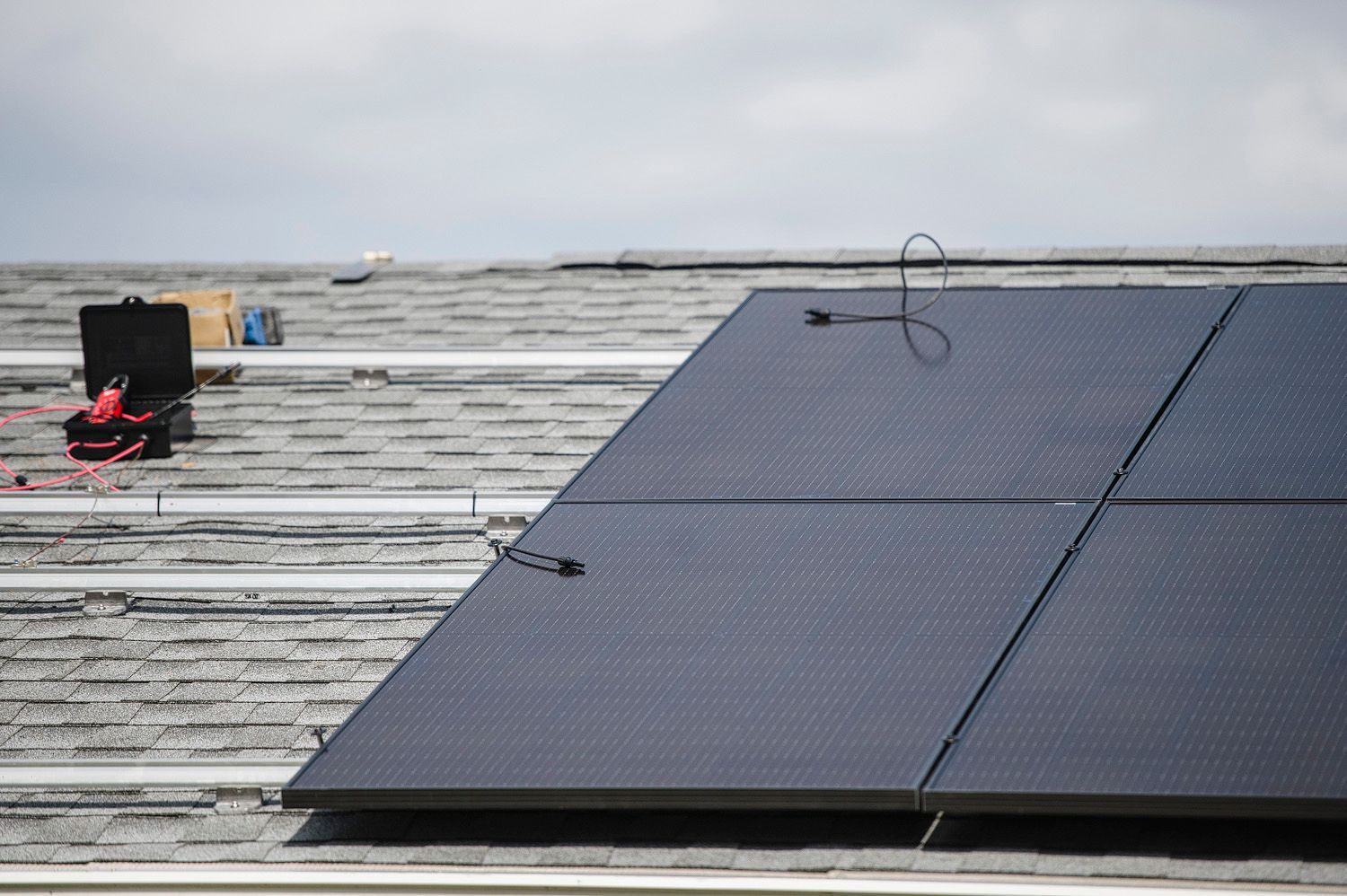
- Outright Purchase: Purchasing solar panels outright offers the best ROI as you own the system and all the benefits. The initial cost may be high, but the long-term savings and incentives can offset this cost.
- Solar Loans: Solar loans allow you to finance the installation costs over time, similar to a mortgage. This option enables you to benefit from solar without the upfront expense, though it may reduce overall ROI due to interest payments.
- Power Purchase Agreements (PPAs): Under a PPA, a third party installs and owns the solar panels on your property. You purchase the generated electricity at a fixed rate, often lower than current utility rates. While this option offers lower upfront costs, the long-term savings and ROI are typically less than owning the system outright.
- Enhancing Tenant Appeal: Investing in solar panels can make your property more attractive to potential tenants. Environmentally conscious tenants are increasingly seeking properties with sustainable features. By offering a solar system, you can attract high-quality tenants willing to pay a premium for eco-friendly accommodations.
Conclusion
Investing in solar panels offers a multitude of benefits for landlords. From reducing energy bills and increasing property value to contributing to environmental sustainability, the ROI of solar energy is substantial.
Over time, solar panels pay off their cost by reducing your electricity bills, and in certain instances, even generate additional income through incentive payments.
By understanding the financial incentives, long-term savings, and factors influencing ROI, landlords can make informed decisions that enhance their property’s profitability and appeal.
As the demand for clean energy continues to rise, a solar panel investment is not only a smart financial move but also a step toward a more sustainable future.
If you have more questions, contact Vesta Home Electric.

